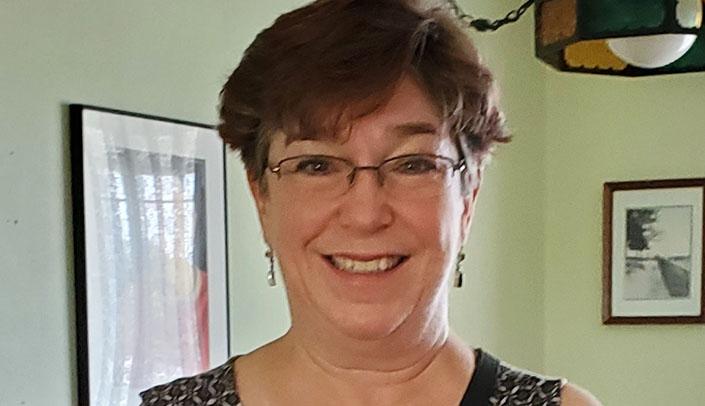The U.S. Department of Education has identified technical skills in biology, biochemistry, computer science and biophysics as an area of national need. UNMC Graduate Studies is answering the nation’s call by adding five fellowships to its structural biology and molecular biophysics (SBMB) training program.
These skills can lead to big discoveries. Study in SBMB “provides an atomic view of biological macromolecules and describes the forces involved in the intermolecular interactions that constitute life,” said Gloria Borgstahl, PhD, professor in the Eppley Institute for Research in Cancer and Allied Diseases.
The additional fellowships are a win-win. They will be funded by a grant from the U.S. Department of Education’s Graduate Assistance in Areas of National Need (GAANN) program. The SBMB program has a history of GAANN support, but this is the first time UNMC has been awarded a GAANN grant request at 100%.
UNMC’s application, under Dr. Borgstahl’s leadership, received a perfect score from reviewers.
Dele Davies, MD, senior vice chancellor for academic affairs and dean for graduate studies, has made pursuit of such institutional training grants a priority. This is now the medical center’s third such grant.
"This training grant helps in UNMC's strategic vision of multiple nationally funded institutional training grants to support the training of our graduate students and is in addition to the National Cancer Institute-supported Cancer Biology training program and the NIH-supported Neuroimmunology of Disease training programs," Dr. Davies said. "It also builds on the success our graduate students have had in getting multiple individual federally- and foundation-funded training awards over the past nine years, and it continues to build on UNMC’s vision of being the best place to train graduate students in the nation."
To that end, UNMC provides 25% additional monies in matching funds to SBMB, as required by GAANN. Additionally, GAANN fellowships are for three years, and UNMC graduate students often take five years to complete their PhD programs. UNMC will continue to support its GAANN fellows through research assistantships or additional graduate fellowships.
Dr. Davies added: "The GAANN program provides a unique opportunity for UNMC graduate students to work with an interdisciplinary team. These skills will be useful for multiple research pathways and will also provide trainees with the skill sets for various academic faculty positions."
The program’s graduates are expected to make an impact, both in research, and as educators themselves.
"Our goal is to produce a diverse group of outstanding researcher-teachers with excellent communication skills and technical expertise that will become the next generation of faculty in SBMB," Dr. Borgstahl said.
